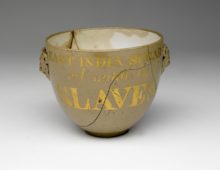The Surgeon’s Blade Category
The Surgeon’s Blade: Dents and Diseases – Bonaparte’s Health
December 20, 2018 - Mick Crumplin
In his latest medical blog, Mick Crumplin discusses the health of Napoleon Of the three greatest heroes of the long wars against France and Napoleon, Nelson, Bonaparte and Wellington, only Nelson was to die in action. Nelson had suffered many illnesses and injuries during his short existence, arguably being most forward in close action. Wellington […]
The Surgeon’s Blade: An Amputation at the Hip Joint
June 11, 2018 - Mick Crumplin
In his latest medical blog, Mick Crumplin discusses one of the most difficult and dangerous medical procedures of the Napoleonic wars Sometimes we must marvel at how far human endurance can be stretched. This operation is an extremely stressful one, performed 200 years ago, 31 years before the discovery of anaesthesia. It entailed removal of […]
The Surgeon’s Blade: Battlefield head wounds and trepanning
March 29, 2018 - Mick Crumplin
For his latest medical blog Mick Crumplin discusses head wounds on the battlefield and the ancient medical practice of trepanning Of all wounds inflicted in warfare, roughly 20-25% of them are head injuries. With modern day treatment, about 80% or more patients will survive to serve a ‘useful’ life. The bony skull or cranium protects […]
The Surgeon’s Blade: The Sad Case of Captain St Pol
February 9, 2018 - Mick Crumplin
Mick Crumplin’s latest medical blog is the gory tale of an officer who refused to have his leg amputated St Pol, an officer in the 7th or Royal Fusiliers was about to scramble up the great breach at Badajoz, during the furious and multiple assaults on that place on the night of 6 April, 1812. […]
The Surgeon’s Blade: John Hunter, Father of Scientific Surgery
December 15, 2017 - Mick Crumplin
Mick Crumplin’s latest medical blog features the great scientific surgeon, John Hunter In the history of Britain, Scotland has a right to stand proud of its disproportionate contribution to our nation’s growth and reputation. Through the Age of Scottish Enlightenment and systematically making provision for educating its youth in parish schools and universities, Scotland injected […]
The Surgeon’s Blade: Lieutenant George Simmons ‘Most Dangerous Wound’
November 2, 2017 - Mick Crumplin
Mick Crumplin continues his medical blog with the story of the terrible suffering and survival of a young officer in the Peninsular Wars and at Waterloo It is nigh impossible to imagine how much this young officer suffered after being desperately wounded at the Battle of Waterloo. He was incredibly fortunate to have survived. George […]
The Surgeon’s Blade: How Nelson lost his arm
September 5, 2017 - Mick Crumplin
Mick Crumplin continues his Napoleonic era medical blog by looking at Nelson’s trauma at Tenerife Lord Nelson was a leader both inspirational and impetuous in style. He would often pay a price for these traits. In the early years of the Napoleonic war, the Royal Navy was having considerably more success than the nation’s land […]
The Surgeon’s Blade: Leeches, humours and Napoleon’s piles
August 18, 2017 - Mick Crumplin
Mick Crumplin continues his medical blog by looking at the use of leeches in medicine and their use prior to the Battle of Waterloo The practice of bleeding patients was used through centuries. It was based on the Galenic theory of the balance of the four humours of the body (blood, phlegm, black and yellow […]
The Surgeon’s Blade: Transport of wounded or sick soldiers in the Peninsula
July 28, 2017 - Richard Moss
Mick Crumplin continues his medical blog by looking at Transport of wounded or sick soldiers in the Peninsula Wars Transport for supplies, casualties and sick, ammunition and equipment was a massive challenge for Arthur Wellesley in the Peninsular campaigns (1808-14). He was starting a series of movements to defend his boundaries, plan for evacuation if […]
The Surgeon’s Blade: The field tourniquet
May 12, 2017 - Mick Crumplin
The Tourniquet (any instrument or device for temporarily constricting an artery of the arm or leg to control bleeding – the word is derived from 17th C. French – a device that operates by turning, from tourner, to turn) Since around 75% of injured survivors have traditionally been wounded in the limbs, it would seem […]


